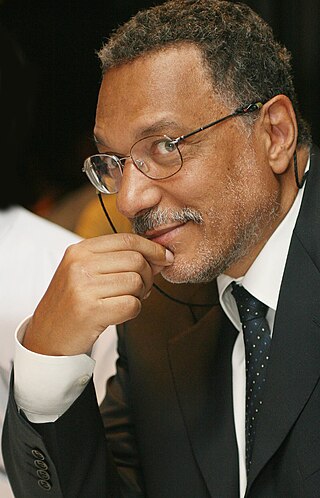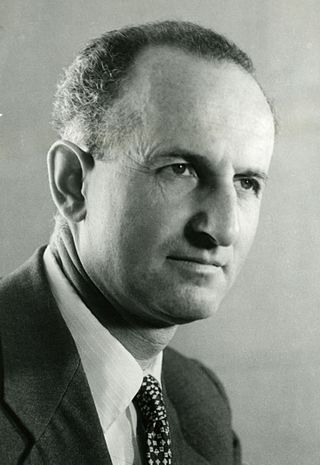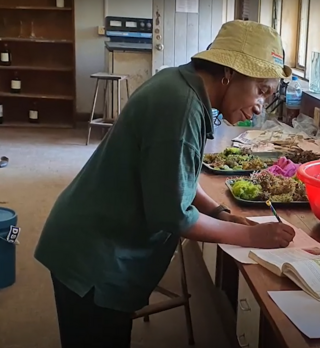Harald Rosenthal (born 9 June 1937) is a German hydrobiologist [1] and fisheries scientist known for his work in fish farming, ecology, and international cooperation.
Harald Rosenthal (born 9 June 1937) is a German hydrobiologist [1] and fisheries scientist known for his work in fish farming, ecology, and international cooperation.
Rosenthal was born and raised in Berlin. From 1957 to 1962, he studied zoology, botany, chemistry, geography, and philosophy at the Freie Universität Berlin (Free University of Berlin). [1] From 1963 to 1968, he studied hydrobiology and fishery science in Hamburg. [1]
He wrote his doctoral thesis in 1969 on mass rearing of larval herring [1] and his habilitation thesis in 1981 on closed-circuit systems in fish farming and research. From 1989 to 2002, he was a professor at the Institut für Meereskunde (Institute for Marine Sciences) of Kiel University.
Rosenthal research focused on two areas:but
In addition to his own research, Rosenthal plays an important role in the international collaboration of hydrobiologists and aquaculturists, in particular between Canada and Germany as well as Israel and Germany.
Rosenthal is editor of the Journal of Applied Ichthyology and founder and president of the World Sturgeon Conservation Society (WSCS). [1] He holds honorary doctorates of the universities of Edinburgh (1985), Moncton (1996), and Szczecin (2003) and is a member of the Royal Swedish Academy of Sciences. [1]

Aquaculture, also known as aquafarming, is the controlled cultivation ("farming") of aquatic organisms such as fish, crustaceans, mollusks, algae and other organisms of value such as aquatic plants. Aquaculture involves cultivating freshwater, brackish water, and saltwater populations under controlled or semi-natural conditions and can be contrasted with commercial fishing, which is the harvesting of wild fish. Aquaculture is also a practice used for restoring and rehabilitating marine and freshwater ecosystems. Mariculture, commonly known as marine farming, is aquaculture in seawater habitats and lagoons, as opposed to freshwater aquaculture. Pisciculture is a type of aquaculture that consists of fish farming to obtain fish products as food.

Mariculture, sometimes called marine farming or marine aquaculture, is a branch of aquaculture involving the cultivation of marine organisms for food and other animal products, in seawater. Subsets of it include, fish farms built on littoral waters, or in artificial tanks, ponds or raceways which are filled with seawater. An example of the latter is the farming of plankton and seaweed, shellfish like shrimp or oysters, and marine finfish, in saltwater ponds. Non-food products produced by mariculture include: fish meal, nutrient agar, jewellery, and cosmetics.

Fishery can mean either the enterprise of raising or harvesting fish and other aquatic life or, more commonly, the site where such enterprise takes place. Commercial fisheries include wild fisheries and fish farms, both in freshwater waterbodies and the oceans. About 500 million people worldwide are economically dependent on fisheries. 171 million tonnes of fish were produced in 2016, but overfishing is an increasing problem, causing declines in some populations.

A conventional idea of a sustainable fishery is that it is one that is harvested at a sustainable rate, where the fish population does not decline over time because of fishing practices. Sustainability in fisheries combines theoretical disciplines, such as the population dynamics of fisheries, with practical strategies, such as avoiding overfishing through techniques such as individual fishing quotas, curtailing destructive and illegal fishing practices by lobbying for appropriate law and policy, setting up protected areas, restoring collapsed fisheries, incorporating all externalities involved in harvesting marine ecosystems into fishery economics, educating stakeholders and the wider public, and developing independent certification programs.

Daniel Pauly is a French-born marine biologist, well known for his work in studying human impacts on global fisheries and in 2020 was the most cited fisheries scientist in the world. He is a professor and the project leader of the Sea Around Us initiative at the Institute for the Oceans and Fisheries at the University of British Columbia. He also served as Director of the UBC Fisheries Centre from November 2003 to October 2008.
Bruno Hofer was a German fishery scientist, credited with being the founder of fish pathology.

Hydrobiology is the science of life and life processes in water. Much of modern hydrobiology can be viewed as a sub-discipline of ecology but the sphere of hydrobiology includes taxonomy, economic and industrial biology, morphology, and physiology. The one distinguishing aspect is that all fields relate to aquatic organisms. Most work is related to limnology and can be divided into lotic system ecology and lentic system ecology.
The Centre for Environment, Fisheries and Aquaculture Science (Cefas) is an executive agency of the United Kingdom government Department for Environment, Food and Rural Affairs (Defra). It carries out a wide range of research, advisory, consultancy, monitoring and training activities for a large number of customers around the world.
Stewart Springer was an American ichthyologist and herpetologist. He was a world-renowned expert on shark behavior, classification (taxonomy), and population distribution. More than 35 species of sharks, skates, rays, and other creatures are either classified by or named after him.
Ingo Heidbrink is a German maritime historian who is Professor of History with a specialization on Maritime History at Old Dominion University in Norfolk, Virginia. He is specialized on Fisheries History, Traditional Watercraft and Museum Ships, Methodology of Maritime History and interdisciplinary research projects. Since Summer 2021 he is Chair of the Department of History at Old Dominion University.

Heinz Steinitz was a senior Israeli marine biologist and herpetologist, Professor and Chairman of the Department of zoology at the Hebrew University in Jerusalem. He laid the foundation for research and teaching in marine biology and oceanography in Israel. In 1968 he founded the Marine Biology Laboratory of the Hebrew University near Eilat, serving as its first director. He also served as a founding member of the Zoological Society of Israel and a co-founder of the Society for the Protection of Nature in Israel.
The following outline is provided as an overview of and topical guide to fisheries:
Aquaculture in Madagascar started to take off in the 1980s. The industry includes the cultivation of sea cucumbers, seaweed, fish and shrimp and is being used to stimulate the country's economy, increase the wages of fishermen and women, and improve the regions ocean water quality. Coastal regions of Madagascar are reliant on the Indian Ocean's marine resources as a source of food, income, and cultural identity.
Günter Dietrich was a German oceanographer. He was the first to describe the Agulhas Current in detail, he provided essential contributions to the understanding of bottom water exchange in the North Atlantic and he shaped marine research in Germany after World War II.
Gordon Pennington Gunter was an American marine biologist and fisheries scientist. He is noted for his pioneering study of fisheries in the northern Gulf of Mexico, a topic to which he devoted his entire professional life over a career spanning 60 years. His own research, and that of the scientists under his direction, established an understanding of the ecology, comparative physiology of the plant and animal life, and commercial fisheries of the region, and he coined the phrase "fertile fisheries crescent" to refer to Mississippi Sound and adjacent waters along the United States Gulf Coast. He also pioneered the study of the comparative physiology of shellfish and fish.
Cecil von Bonde was a South African zoologist, fisheries scientist and oceanographer.
André Eric Punt is a South African fisheries scientist and mathematician, best known for his work on fisheries stock assessment. He received the K. Radway Allen Award in 1999 for his contributions to fisheries science.

Flower Ezekiel Msuya is a Tanzanian phycologist. She specialises in algaculture and integrated aquaculture.
RoseEmma Mamaa Entsua-Mensah is a Ghanaian fisheries scientist and freshwater aquatic ecologist. She was the chief research scientist and deputy director general of the country's Council for Scientific and Industrial Research (CSIR) from 2008 to 2019. She then became the director of the Centre for Innovation and Entrepreneurship at the CSIR College of Science and Technology. She holds a Bachelor of Science in zoology and a Master of Science in marine biology from the University of Cape Coast, as well as a PhD in fisheries science from the University of Ghana and a post-graduate certificate in aquatic resource management from the University of Hull. Her work has focused on documenting fish species in freshwater ecosystems and evaluating environmental impacts on their environments. She has also written about the roles of women in science education and research. She is a fellow of the Ghana Academy of Arts and Sciences.